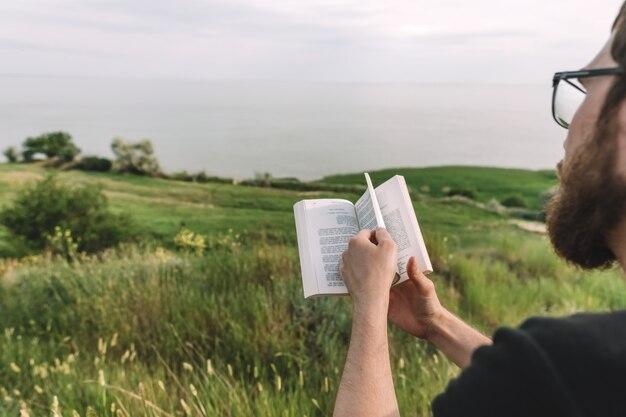
Field trips are an exciting and educational opportunity for students to step outside the confines of the classroom and explore the real world. Whether you’re visiting a museum, a historical site, or a nature reserve, writing a field trip report is an essential task to document your experience and reflect on what you have learned.
In this blog post, we will guide you through the process of writing a field trip report. We’ll cover everything from understanding what a field study report is to providing examples of field research. Additionally, we’ll explore the importance of using transition words or phrases and how to write a fieldwork report specifically in geography.
By the end of this post, you’ll have a clear understanding of how to structure your field trip report, highlight key findings, and convey your observations effectively. So, let’s dive in and discover the art of crafting an impressive field trip report!

Field trips are an exciting break from the monotony of the classroom, allowing students to explore the world outside the textbook. But what happens after the trip is over? That’s right, the dreaded field trip report. Don’t worry, though! I’m here to guide you through the ins and outs of writing a captivating field trip report that will impress your teachers and keep boredom at bay.
No one likes a dull and lifeless introduction, especially not your teacher. Grab their attention right from the start by setting the scene of your field trip. Paint a vivid picture in their minds with words that transport them to the destination. Whether it was a visit to the local zoo or a thrilling adventure to a science museum, make them feel like they were right there with you.
Now that you’ve captured your teacher’s attention, it’s time to dive into the juicy details of your field trip. Share the memorable moments, the funny anecdotes, and the exciting discoveries. Did your best friend accidentally step in elephant droppings? Did you get lost in the labyrinth of an art museum? These are the stories that will make your field trip report stand out from the rest.
A field trip is not just about having a grand adventure; it’s also an opportunity to learn. Impress your teacher by showcasing the knowledge you gained during the trip. Highlight the educational aspects, such as the new facts you learned, the exhibits that fascinated you, and any interactions with experts that expanded your understanding of the subject. Remember, knowledge is power, and it’s your time to shine!
The last thing you want is for your field trip report to look like a chaotic jumble of random thoughts. Take a deep breath and organize your ideas before putting pen to paper (or in this case, fingers to keyboard). Divide your report into clear and logical sections, such as “Introduction,” “Highlights,” and “Key Learnings.” This will make it easier for your teacher to follow along and appreciate your well-structured masterpiece.
Writing a field trip report doesn’t have to be all serious business. Inject some humor into your writing to keep your teacher entertained. Share a witty remark or a funny observation that made everyone laugh during the trip. Just remember to strike a balance — you want to amuse, not distract. So, make your teacher chuckle while still maintaining the informative nature of your report.
It’s time to wrap it all up and leave a lasting impression. Summarize your key takeaways from the field trip and leave the reader with something to ponder. Perhaps a thought-provoking question or a call to action related to the topic. Let your creativity shine through, and make your conclusion a memorable one that ties together everything you’ve written.
Now that you know the secrets to writing an exceptional field trip report, go forth and conquer! Your teacher will be impressed by your storytelling skills, your knowledge retention, and your ability to entertain with a touch of humor. So, grab that pen or open that laptop, and let your field trip experiences come to life on the page. Happy writing!

Transition words and phrases are like secret passageways in your writing. They smoothly guide your readers from one idea to another, ensuring a seamless flow. It’s like taking your readers on a thrilling adventure rather than leaving them stranded in a maze of disconnected thoughts. So, grab your compass and sprinkle these magical words throughout your field trip report!
Oh, the joys of sharing your field trip experiences with others! To write a captivating field trip report, follow these steps:
Get your readers hooked from the get-go. Engage them with a brief overview of your field trip and its purpose. Remember, first impressions matter, even in the wondrous land of field trip reports!
No one wants to hear endless tales of every single droplet in that ocean of knowledge. Select the most exciting and educational parts of your trip, like spotting rare species or uncovering hidden treasures. These gems will make your report shine bright like a flashlight in a dark cave!
Paint a vivid picture of your adventures using descriptive and colorful language. Imagine you’re setting the stage for a thrilling play. Make your readers feel like they’re right there with you, dodging hazards and exploring breathtaking sights!
Numbers, graphs, and charts might not be as thrilling as sword fights and dragons, but they are vital to give your field trip report substance. Include any scientific data you collected, and analyze it like a detective, searching for hidden clues in the numbers.
Wrap up your field trip report with a strong conclusion that summarizes your most significant findings. Reflect on what you learned and how the trip impacted your understanding of the subject. Don’t be afraid to add a dash of introspection and personal growth.
Ah, transitional phrases, the unsung heroes of coherent writing! These magical phrases connect your thoughts like puzzle pieces, guiding your readers effortlessly from one paragraph to another. Examples include “On the other hand,” “In addition,” or “As a result.” They’re like the smoothie in your writing blender, blending your ideas into a tasty concoction your readers will savor!
A field study report is a formal document that recounts the details of a research or educational trip. It’s like a treasure map that guides readers through your exciting journey. This report usually includes an introduction, a description of the field trip, data analysis, and a conclusion. Think of it as your chance to become a storytelling scientist!
Field research, my dear adventurer, is a thrilling expedition that takes you out of the dull confines of a classroom or laboratory. It involves gathering data in the real world, beyond the pages of textbooks. Examples of field research include studying animal behavior in natural habitats, exploring geological formations, or investigating the impact of pollution in a local community. So pack your backpack and get ready for an unforgettable quest!
Ah, geography, the art of discovering the secrets this remarkable world holds! To write a captivating fieldwork report in geography, follow these steps:
Choose a fascinating research topic and plan your fieldwork accordingly. Whether you’re exploring rivers, mountains, or urban landscapes, ensure your adventure aligns with your research objectives. No need to pack a spyglass, but a map could come in handy!
Get your detective hat on! Collect data through observations, surveys, interviews, or measurements. Just like a secret agent, remember to document everything meticulously, as accuracy is key.
Once you’ve gathered the data, it’s time to decode its hidden messages. Analyze and interpret the information you collected, using geographic tools and concepts to unveil the grand patterns of our wonderful planet.
Present your findings as if you were unveiling buried treasure. Summarize the results of your analysis and draw thoughtful conclusions. Reflect on the significance of your research and its implications for the wider world. You might just become a geography adventurer who changes the course of history!
And there you have it, your ultimate guide to writing a captivating field trip report! So, pick up your pen, grab your notebook, and embark on an adventure of words as you share your thrilling field trip experiences with the world!